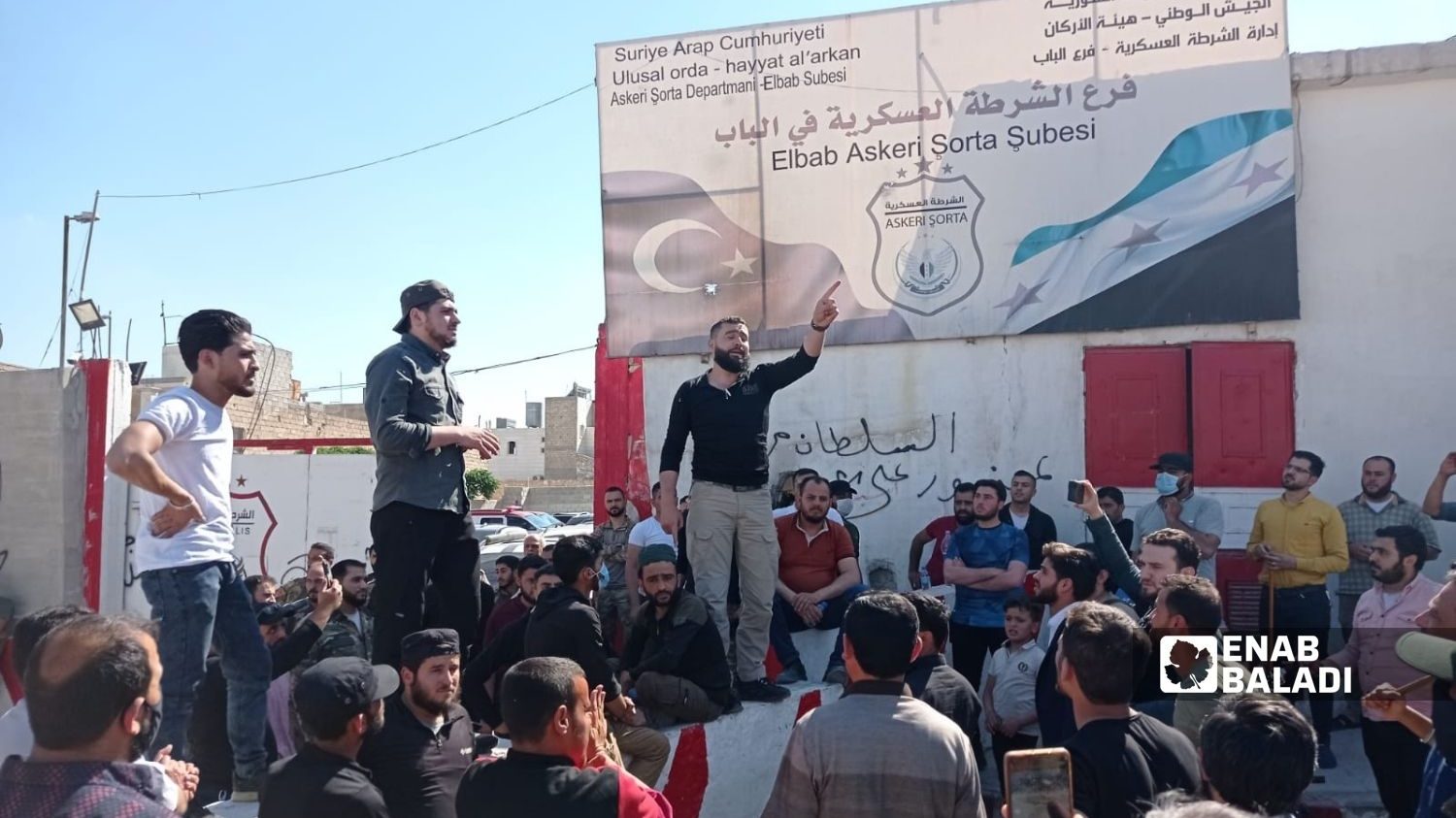Al-Bab city in the eastern Aleppo countryside witnessed demonstrations in front of the headquarters of the Syrian National Army’s military police, against the release of a person accused of belonging to the ranks of the Syrian regime and committing violations against civilians.
On Wednesday, demonstrators set tires on fire in front of the headquarters, wrote protest phrases on the walls of the military police building, and described those defending the shabiha as “shabiha” themselves.
Read Also: Two Killed, Including Regime Defector, in Assassination Attempts
Activists who appeared in video recordings reported that the military police in the al-Bab city released a former Fourth Division military person who had served in the regime for nine years. He was arrested four months ago when he came to the areas of Aleppo countryside from the areas controlled by the Syrian regime.
Social media circulated demands and appeals to the military judiciary and the National Army to pursue the case, which activists considered a “betrayal of the martyrs’ blood” for 11 years.
The soldier recently ended his service with the regime and confessed to killing seven people and raping two women, according to his testimony to the military police, a copy of which activists obtained.
The Military Police released him in exchange for a fine of $1,500, mediated by Hamido al-Juhaishi, a leader in the Sultan Murad Division, which is affiliated with the National Army. The decision was signed by the head of the Military Police branch, known as Colonel Abu Khaled.
Accusations abound among the national army factions, such as covering up shabiha, managing human and product smuggling through border crossings, failing to hold perpetrators accountable, or displaying extravagance and luxury.
Violations and clashes abound in areas of national army control, often unable to be considered by independent judicial bodies. Such is the case with the decisions of the Sulaiman Shah Division commander, Mohammed al-Jassem (Abu Amsha), after being convicted of numerous violations, criminalized for corruption, and removed from any “revolutionary” positions.
This article was translated and edited by The Syrian Observer. The Syrian Observer has not verified the content of this story. Responsibility for the information and views set out in this article lies entirely with the author.


